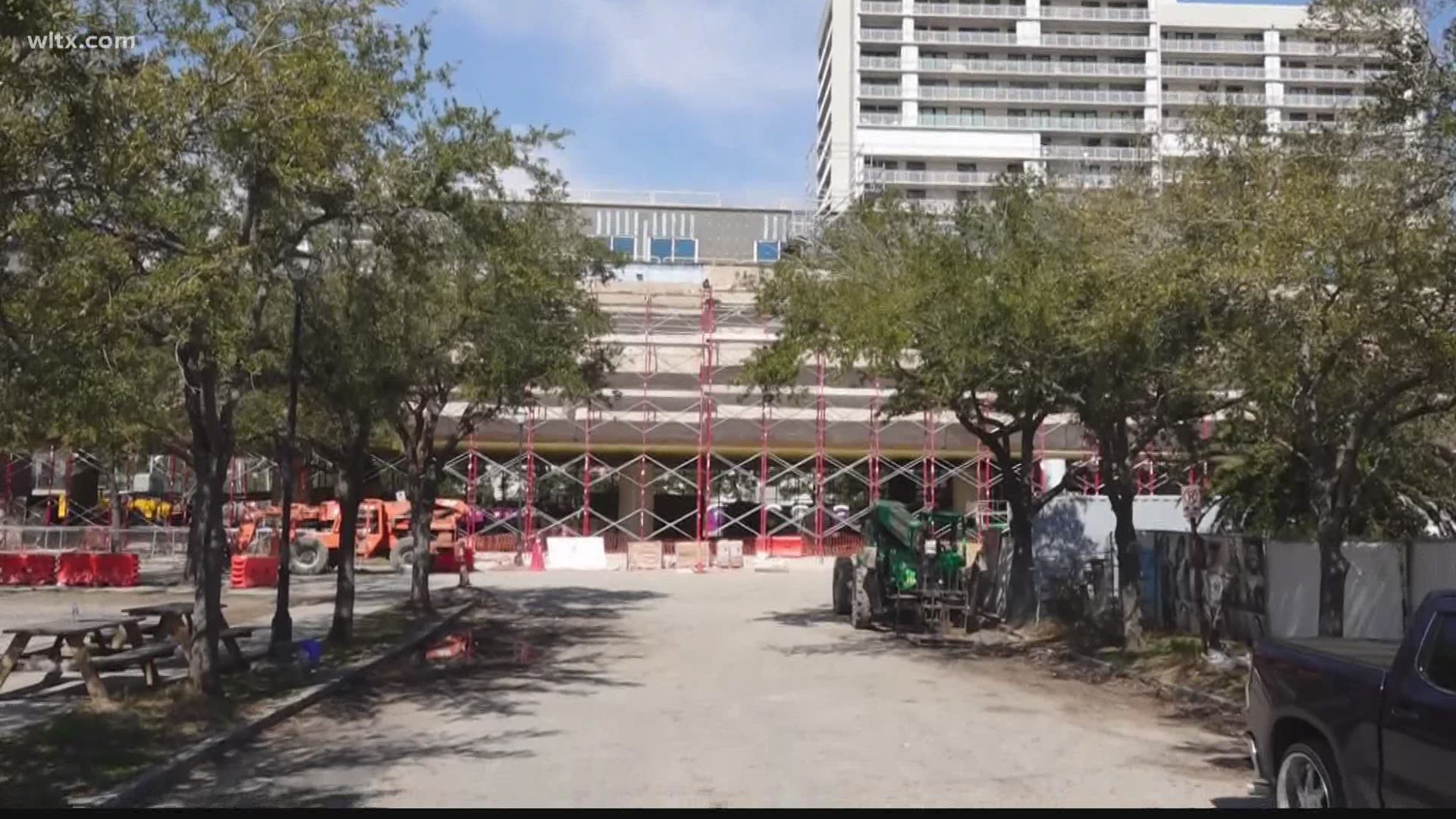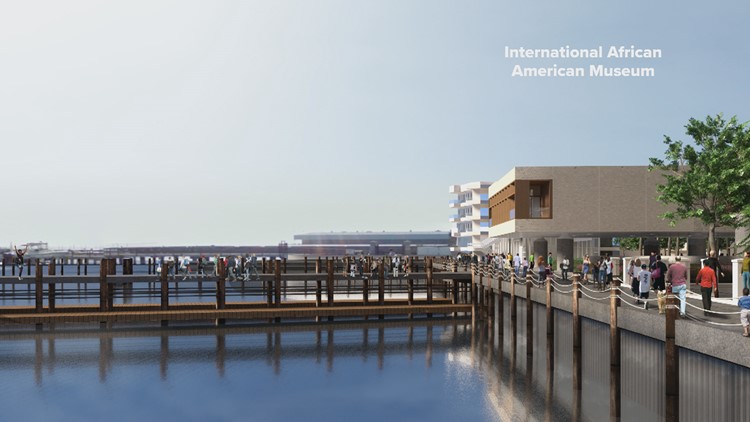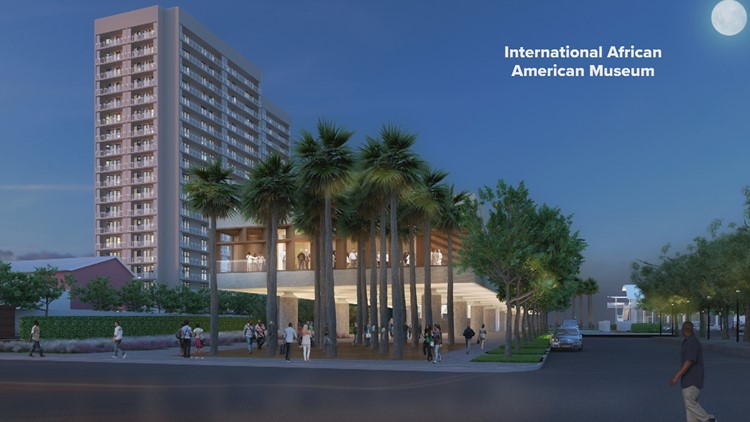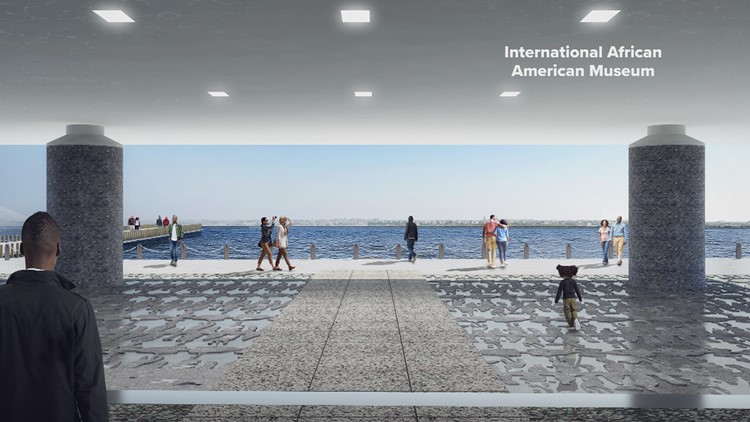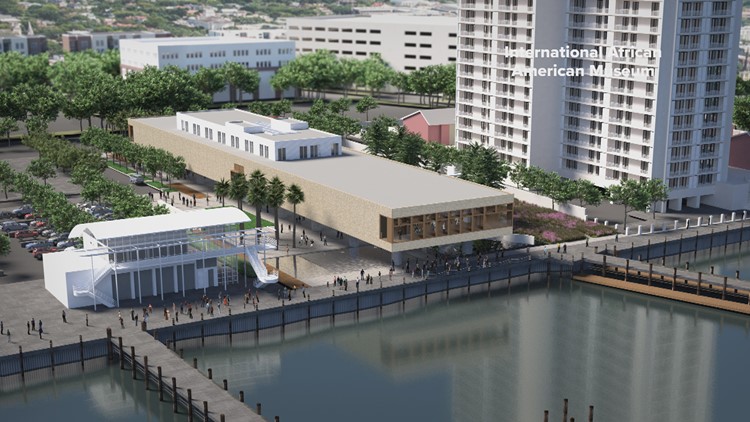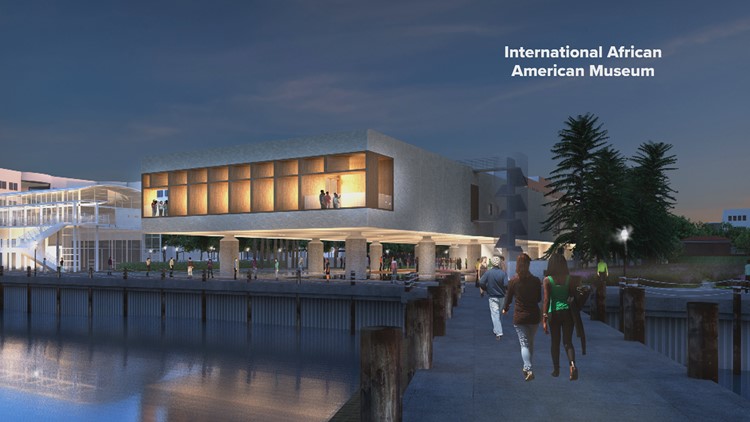CHARLESTON, S.C. — Construction is underway to build the International African American Museum in Charleston.
It's been a work in progress for the past 20 years.
"There's no where else in the world that we can tell this story, and we're so proud that it's in South Carolina," said Dr. Elijah Heyward III, chief operating officer of the museum.
The COO says behind the future site of the museum, you can see Fort Sumter, where the Civil War started, Sullivan's Island, which was a point of quarantine and was the pathway ships carried African captives to get to, where the museum will be located.
"What makes our museum so special is the fact that it's located at the former Gadsden's Wharf, which we have as a sacred site," explained Dr. Heyward. "Charleston being the largest point of entry for captives in the country, our museum that we're building here honors this important legacy."
International African American Museum Rendering Photos
The museum is meant to honor the untold stories of the African American journey. It will feature the African Ancestors Memorial Garden, exhibits and a Center for Family History.
"The idea is that there is a wall of around 1870 that makes geological research difficult to do for African Americans," said Dr. Heyward. "So our goal is to break that wall down to offer the resources both in on-site books, but also human capital and kiosks powered by family search in partnership with the Church of Jesus Christ of Latter-day Saints to make this vision for a geological connection point a reality."
The museum has a team and partners that's been collecting documents and artifacts over the past two decades.
The chief operating officer believes this is a key part of American history. He says in order to understand who we are as Americans, you have to understand all facets of the journey.
"The idea is to inspire hope. There's so many narratives that we're going to share. There's so many ways in which African Americans have really transformed the landscape of our nation. So we want to honor those contributions foregrounding it in South Carolina, but also not negating or undervaluing that global impact by virtue of the touch point here in Charleston, South Carolina."
Construction is expected to wrap up this summer and the museum will open in 2022.
Dr. Heyward says he's grateful to everyone who's contributed to help build the museum and provide artifacts.
For more information on the International African American Museum, click here.

